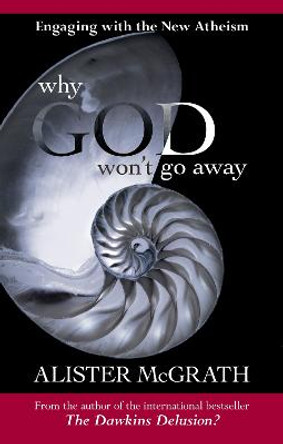Description
- Answers the psychological question of why, in the face of overwhelming scientific evidence to the contrary, do religions continue to prosper?
- Looks at atheism and religion using a fair and balanced approach based on the latest work in psychology, sociology, anthropology, psychiatry and medicine
- Acknowledges the many psychological benefits of religion while still questioning the validity of its supernatural belief systems and providing atheist alternatives to a fulfilling life
About the Author
Mick Power is Professor of Clinical Psychology at the University of Edinburgh, as well as a practicing Clinical Psychologist who has worked at Guy's Hospital and Maudsley and Bethlem Hospitals. Raised as a Catholic, Power became an atheist at 16.
Reviews
"In this fascinating little book (201 pages, including references and a subject index), Mick Power communicates no such tinge of agnosticism when proclaiming in the preface of Adieu to God: Why Psychology Leads to Atheismthat "my belief is that psychology (with help from philosophy, anthropology, sociology, physics, biology . . .) offers a far more powerful explanation than any religious system ever will" (p.x)." (PsycCRITIQUES, 1 June 2013)
"His final chapter summarises the argument and proposes how one might be a healthy atheist with a sense of meaning and purpose, a sense of belonging and community and a set of personal goals and values. He does not forecast the disappearance of religions but proposes how they can be explained in terms of psychology and sociology." (The Scientific & Medical Network, 1 April 2012)
Book Information
ISBN 9780470669945
Author Mick Power
Format Paperback
Page Count 214
Imprint Wiley-Blackwell
Publisher John Wiley and Sons Ltd
Weight(grams) 277g
Dimensions(mm) 230mm * 152mm * 11mm







![Why God Won't Go Away: Engaging with the New Atheism by Alister McGrath 9780281063871 [USED COPY] Why God Won't Go Away: Engaging with the New Atheism by Alister McGrath 9780281063871 [USED COPY]](https://cdn11.bigcommerce.com/s-zkx5lhzlf8/images/stencil/444x444/products/4851522/4850752/9780281063871__57180.1722019811.jpg?c=1)
